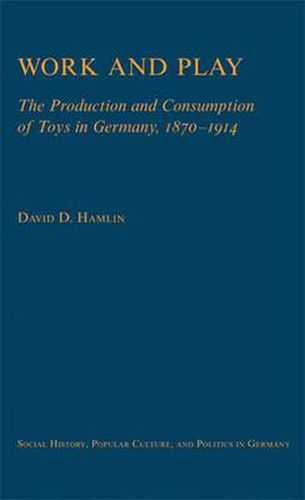Readings Newsletter
Become a Readings Member to make your shopping experience even easier.
Sign in or sign up for free!
You’re not far away from qualifying for FREE standard shipping within Australia
You’ve qualified for FREE standard shipping within Australia
The cart is loading…






The development of toys in late nineteenth century Germany represents a perhaps surprising, but nonetheless extremely valuable tool for understanding the influence of consumerism on Wilhelmine society at a time of extreme social transformation. The rapid development of commerce in toys brought to the industry a significant increase in national wealth and power, but toys also became a site for contesting social and cultural problems. Would consumer capitalism lead to greater wealth or more exploitation? Should toys train young children in desirable adult traits or unlock the doors of fantasy? What were the implications for modern individualism and society inherent in these alternatives? Through the lenses of producers, distributors, retailers, consumers, pedagogues as well as cultural and social reformers, Hamlin explores how this new industry helped to lead the way toward German modernity.
$9.00 standard shipping within Australia
FREE standard shipping within Australia for orders over $100.00
Express & International shipping calculated at checkout
The development of toys in late nineteenth century Germany represents a perhaps surprising, but nonetheless extremely valuable tool for understanding the influence of consumerism on Wilhelmine society at a time of extreme social transformation. The rapid development of commerce in toys brought to the industry a significant increase in national wealth and power, but toys also became a site for contesting social and cultural problems. Would consumer capitalism lead to greater wealth or more exploitation? Should toys train young children in desirable adult traits or unlock the doors of fantasy? What were the implications for modern individualism and society inherent in these alternatives? Through the lenses of producers, distributors, retailers, consumers, pedagogues as well as cultural and social reformers, Hamlin explores how this new industry helped to lead the way toward German modernity.